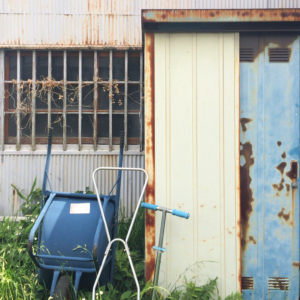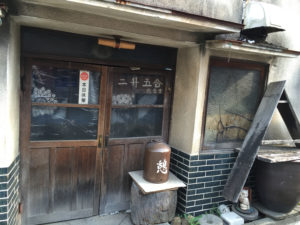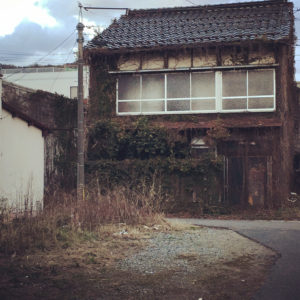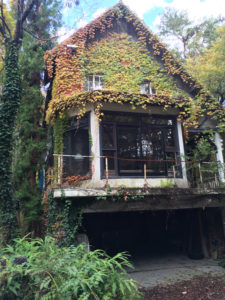
We don’t need to tell you about the brilliance of Japan quality: detailed, good service and competitive price etc etc. But for how good Japan quality in general is, it’s equally easy to screw up. Badly.
Japan’s real estate industry and construction industry are full of fraudulent companies.
A number of them are rogue (of course, there are good and trustworthy companies, too.)
You need to be very careful to deal with them.
When you build your brand-new house in Japan, you must be extra mindful because it could be a disaster if it goes wrong.
It is widely known to the industry professionals that the laws are not necessarily protecting the consumers
(customers).
Why is the owner (consumer) in so disadvantageous position ?
There are five main reasons.
1.The industry is not seeking a repeat business so they don’t look after customers well
2. High overhead cost
3. The related laws have many loopholes
4. The owner(customer) trusts the contractor (real estate agents and builders included) too much
5. Victim’s tragic stories are not widely reported in the media.
Here are more specific problems you may encounter when you build the house or do the major renovation work on your house in Japan
1) Oversight
One of the common issues in case of the construction of conventional houses is that construction companies supervise their own construction process.
In other words, the contractor and the supervisor who supervises it are the same.
It is very problematic.
This kind of situation is very prone to the conflict of interest.
Usually enforcers(inspectors) and administrators (builders) are
separated for the public works and large building projects.
However in small projects like building a house, they are usually the same.
2) Wrong cost cutting
House makers manipulate the cost of transactions by lowering the cost of the house such as important materials and construction work, rather than cutting down on advertising expenses and operating expenses that should be easier to conduct.
3) Insufficient or fraudulent quotation
The constructions companies and builders usually do not submit the detailed quotations to the customers unless they are asked to do so.

Why ?
In the Construction Industry Act, it is not mandatory to present an accurate detailed estimate to the customers. It is only an endeavor clause.
Moreover, there are no penalty provisions in Article 20 of the Construction Industry Act.
Builders and construction companies are not prosecuted for criminal charges even if they do not submit a detailed quotation to customers.
Here are how to avoid troubles with housing construction.
1. Mindset (preparation)
It is important to carefully make a contract with attitude that learning the correct procedure up to the contract and having the mental attitude that it will not be reversed after the problem has occurred.
2. Home work
It is also important for the owner to learn the minimum legal knowledge.
Building Standard Law, Construction Industry Law.
Other than that, I will do big shopping so I am concerned about finance
Learn the minimum knowledge.
3. Professional support
Get professional support to avoid trouble, contract with an expert from the beginning.
It is also effective to check the content of the quote and the content of the contract.
Hiring specialists naturally costs you, but in real estate transactions once you get involved in the trouble
it is not uncommon to suffer losses of tens of millions of yen. It is the insurance premium.
We recommend hiring specialists to keep the risk of potential massive damages.
Why don’t we hear the reports by the media even troubles in housing construction are occurring so frequently ?
It is because there are so many cases where the victims are forced to take it.
Laws and rules related to housing construction are advantageously made for the industry, so it is rare for the customers who is in trouble to win a case in the court. And those owners often cry themselves over sleep.

That is why troubles related to housing construction are not reported in the media.
Furthermore, the core of the problem is the business model of the industry.
In the construction industry, the business model is based on the typical pyramid structure.
Top of the pyramid (usually major general construction companies and developers such as Shimizu, Kajima, Taisei, Mitsui, Sumitomo and Mitsubishi) take an order from the customer and they subcontract all the work to the second and third tier companies. There are at least five to six tiers in the business chain.
In the end of eco system, the craft men (大工)who are actually working at the construction sites are not fairly treated in terms of the pay. It is very natural for the craft men to do the just tolerable work (or even less) to justify the compensation they receive. In public works however, the construction companies are obliged to submit a detailed estimate form prior to contract. However, in conventional house construction deals, the owner is not protected and the construction companies are not subject to the submission of the detailed estimate sheet. I would venture to say that it is extremely rare for the estimate sheet of the detailed estimate to be submitted before the contract.
We often see the troubles due to the way the housing makers customarily doing the business without submitting the detailed estimate form at the time of contract.
They often charge costumers for the additional work after the contract (they are naturally not stated in the vague quotation) and the price of the house often end up with 20-30% more than the original quote.
Rogue constructions companies do not inform the owner the quote properly and do not submit details such as the price of the material, the building material, the manufacturer name of the equipment, the part number, the grade etc.
If you accept such vague quote, the rogue companies can change the spec of the materials to a cheaper one after the contract. They sometimes even reduce the quantity of the parts and materials.
Also, they intentionally remove the fundamental work process itself from the quote such as foundation work. It means if you ask the foundation work (which you naturally assume is included in the quote), they charge you as an option later.
For example, items such as foundation work, design cost, temporary expenses, are intentionally deleted from the original quote sheet.
Sounds like the third world ? I know. But unfortunately it is the reality.
In order to prevent such troubles, you have to do your home work and know the basics of the
appropriate quotation when building houses.
The good quotation sheet should contain at least the following items.
1.Temporary works
Temporary scaffolding, temporary toilet, electricity cost
2. Foundation work
As to understand the types of reinforcing bars and concrete used in foundation work, construction contents
Please check they are in the details.
3. Wood work
Please check whether it includes materials such as structural materials and plywood
4. Roofing
Don’t forget to check the details of the construction, the type and quantity of the parts to use
5. Sheet metal construction
Check the material and quantity of sheet metal
6. External joinery work
You need to know the manufacturer’s name, type, size, number of pieces so that you can see the contents of the window sash.
7. Internal fitting work
You need to know the manufacturer, type, part number, quantity, etc. for each room so that you can see the contents of the door.

8. Exterior wall construction
You need to know the type and content of the outer wall
9. Waterproof work
You want a balcony ? Check this item.
It should Include watertight and waterproof outer wall.
10. Plastering and tile work
Check if the finishing of foundations and pouches are included.
11. Painting work
Check if it Includes all required painting inside and outside the house
12. Interior work
Wall cross, Plaster wall construction. Check the kind, quantity, unit price of the material.
13. Internal equipment work
Check details of kitchen, toilet, wash basin, unit bath
14. Electrical work
Check details such as wiring, number, type, number of outlets, luminaries etc.
15. Plumbing sanitary
It should say the thickness of the pipes, type, piping construction of the water supply and all pipes.
16. Other expenses
Check the details. This section is often used for pumping up the price saying like
‘administration charges of 10%. Don’t forget to ask the details and logic.

Other Helpful Articles
Pitfall of the condo unit investment in Japan : Management company and work matter
Hidden Defects : Risks in private real estate investment in Japan (Part1)
Final thought
If you properly prepare the quotation, the quantity of the estimate should be at least 20-25 pages.
If your construction company or housing makers try to sell you the house with the quotation of only
5 pages long with very vague and blanket sections, they are almost certainly trying to rip you off.
Don’t make the deal with them or at least you have to ask them to submit more detailed quotation.
Even if you are happy with their quotation, please hire the specialist to verify the details before you sign the contract. Once you sign off the contract, your ordeals would begin. (and these rogue constructions companies and builders are very cunning and know how to exploit the loopholes of the law)
Reference: マイホーム建築の罠
Toshihiko Yamamoto
Real estate investing consultant and author.
Founder of Yamamoto Property Advisory in Tokyo.
International property Investment consultant and licensed
real estate broker (Japan).
He serves the foreign companies and individuals to buy and sell
the real estates in Japan as well as own homes.
He holds a Bachelor’s degree in Economics from
Osaka Prefecture University in Japan
and an MBA from Bond University in Australia
Toshihiko’s book, “The Savvy Foreign Investor’s Guide to Japanese Properties: How to Expertly Buy, Manage and Sell Real Estate in Japan”is now out on Amazon, iBooks (iTunes, Apple) and Google Play.
About the book
Amazon.com Link


1 comment for “Buying a house in Japan ? Here’s all-too common mistakes to avoid”